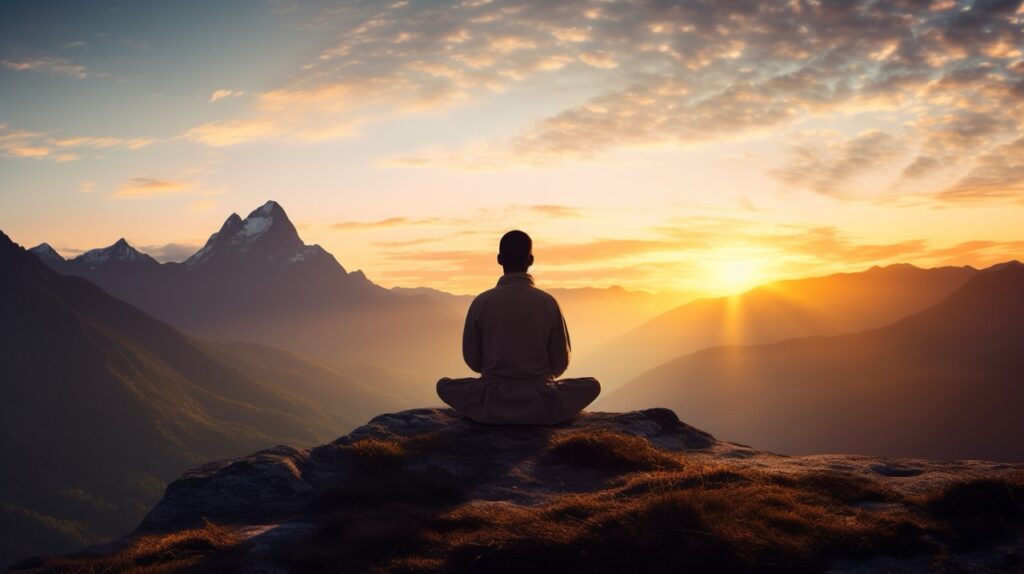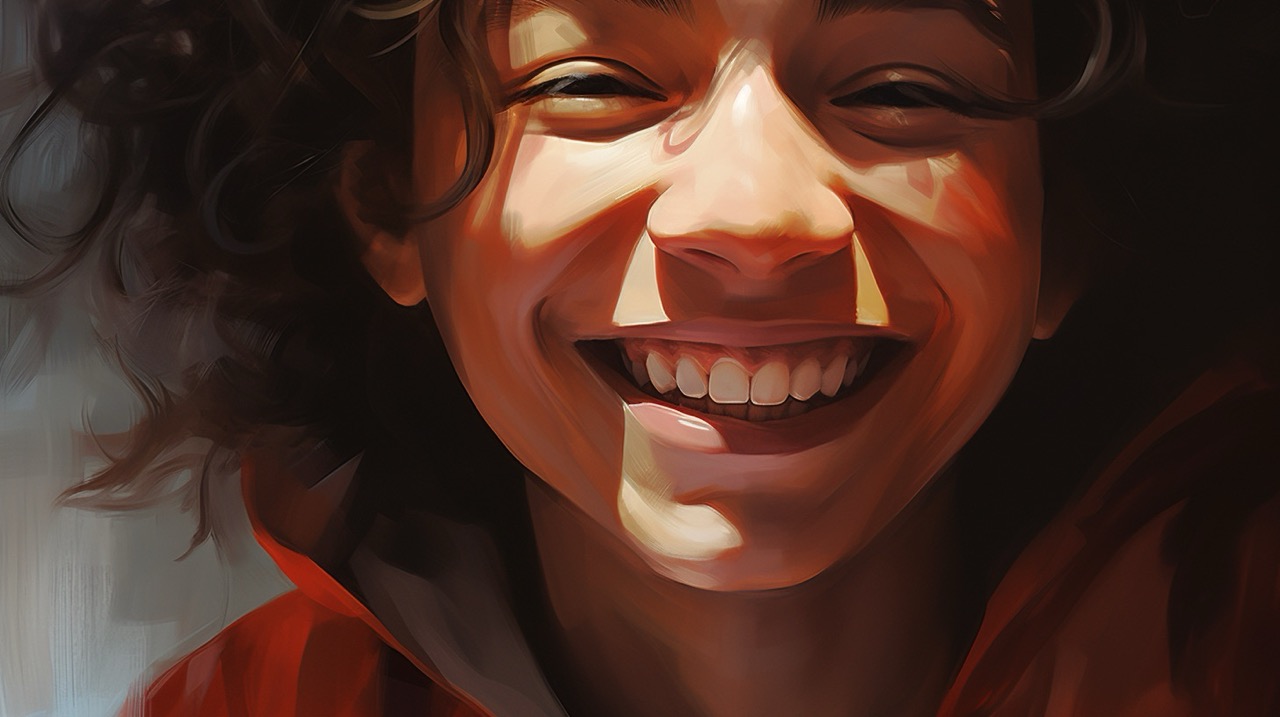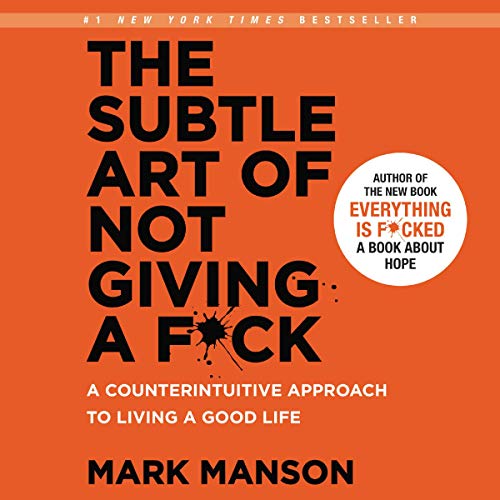Are you happy?
If you feel as if contentment and joy elude you all too often, you’re not alone. Many, perhaps even most of us, chase the illusion of happiness, believing it will arrive through the next big promotion, the perfect relationship with a partner who “gets” us, or a winning lottery ticket. We passively wait for happiness to magically appear if only we could just find the right circumstances.
But what if real, sustainable happiness doesn’t work this way?
Happiness is our natural state. We are joyful little creatures as babies, it’s our normal disposition. So what if happiness is a choice, not an option? One for which a conscious decision must be made, day after day, through our own thoughts and actions?
This concept – that lasting happiness stems from the intentional choices we make each moment – has resonated with philosophical and religious thinkers for millennia. And the field of positive psychology backs it up to a certain extent with modern-day positivity and gratitude teachings.
Table of Contents

“There Is No Path to Happiness: Happiness Is the Path.” (Buddha)
My story in a nutshell goes like this: I subconsciously adopted an unnatural outlook on life as a young child. What I observed and what was displayed to me early on was that happiness is elusive and external; it happens to others or only if you have a lot of money. In my formative years, I was told that life on Earth is Hell.
You don’t have to be a clinical psychologist to infer that’s a mighty pessimistic starting point for a child to navigate life from.
I left home forever the day after my high school graduation. Yet the gloominess my upbringing had hammered into my head followed me for many years to come. If you had told me happiness is a choice, I would’ve scoffed with cynicism. And while I did become a firm believer in hope as a young adult, happiness continued to seem nebulous and out of reach.
Now, decades later, something has started clicking into gear in my mind.
I’m coming to grasp the fact that happiness is an internal state, one which is entirely unrelated to external events, circumstances, or other people. In fact, being hopeful probably just adds fuel to the unhappiness fire – it’s wishful thinking, a yearning for something that is not.
You’ve probably also read as many times as I have that it’s within your power to create happiness for yourself. While those words and syntax make sense, I don’t think I personally ever actually understood what they meant. It was in one ear, out the other, filed away under: esoteric hippie nonsense for the disillusioned good vibes cult.
One of the new daily habits I built this year was to devote some time first thing each morning to focus on, no, not positive thoughts or self-love, but on philosophy. More specifically on Stoicism. The happiness turning point came for me while reading some passages from Epictetus in The Daily Stoic (great little book I sincerely recommend picking up). Happiness is not an emotion, it’s a state of being:
All humans are made to be happy and stable. It is when we yearn for things which we don’t have that we are unhappy.
Why Happiness Today Matters
That really hit home. It is only when we want something outside of our control that we are stricken with anxiety and unhappiness. The only thing we have control over is our own mind and, ultimately, how we react to external things outside of our control. No prescription drug in the world can change that.
Many philosophers and thinkers have argued that the pursuit of happiness is a moral imperative, not just a personal desire. Stoic philosophers in particular saw achieving tranquility and contentment through virtuous choices as our duty for the good of humankind.
When we actively cultivate our own happiness, we are better able to spread compassion and think clearly to help others. Our moral obligation is thus to pursue rational, thoughtful habits that create not just pleasure, but eudaimonia – a sense of meaning, purpose and excellence. Happiness isn’t just about feeling good – it’s about human flourishing.
If happiness is a choice and a moral obligation, how then can we actively cultivate it and take control of our own well-being? While there may be no singular path to lasting contentment, happiness can be learnt. And on the bright side, there are a few proven lifestyle factors and daily habits that also bring inner peace and satisfaction, and thus joy and happiness.
Taking Control: Choose Happiness Daily
Financial security aside (you can buy food, have shelter and basic needs covered), money is surprisingly not a warrant for happiness. In fact, the amount we earn and number of things we possess actually play a rather minor role in how we gauge our happiness. Yes, a pay raise would make us feel less stressed. But less stress does not equate to happiness.
We all have to deal with things. Bad stuff happens. Life can get hectic. Difficult situations crop up. People say mean things. It’s part of being alive. We can choose to be miserable and feel like failures, or we can remember that happiness comes from within. Either way, it’s up to us to choose how we feel. That should be empowering in of itself.
By intentionally incorporating practices that enhance your perspective and capacity to accept things, it’s possible to prime yourself to choose happiness, one day at a time. And if that still sounds super vague, or you feel the Stoic notion of “acceptance” sounds like passive resignation (which it’s not, actually), then the good news is that activities and relationships are major happiness factors, too. And they can be actively cultivated in everyday life.
Social Connections
Spend time and energy in close friendships, a monogomous relationship and family. Surrounding yourself with supportive people and giving back in kind fill an inherent human need for connection. These close-knit connections also greatly reduce anxiety. Humans are social animals, after all. It’s why people who are all alone consistently rank lower in happiness surveys and happy people are married.

Without close connections to other people, it’s hard to be happy. Choosing relationships that encourage our best selves fosters sustained contentment.
The Stoics also recognised our need for belonging and meaningful bonds. But they cautioned about attachment or relying on others for happiness. We must look within ourselves first. As Epictetus wrote: “Don’t seek for everything to happen as you wish it would, but rather wish that everything happens as it actually will.” By letting go of controlling desires, we enjoy social ties as they come, with equanimity and gratitude.
Jim Rohn
“You are the average of the five people you spend the most time with.”
Choose relationships that encourage your best, most virtuous self. Seneca advised surrounding ourselves with uplifting friends versus those who reinforce bad habits or toxicity. Our social circles can either stagnate or elevate our character growth. Happiness blooms from relationships that help us flourish into the best version of ourselves with compassion for others’ imperfections.
Movement & Fitness
You know the drill: regular exercise boosts feel-good endorphins and calms the mind. It really is true. Our bodies were meant to move by design. And movement is energy, making it a natural mood lifter. An active lifestyle also enables restful sleep and a sense of accomplishment.

The Stoics recognised exercise and fitness as critical for both physical and emotional resilience. Musonius Rufus, another influential Stoic philosopher, advocated training both mind and body to endure hardship and master self-control. He wrote: “Just as there is no use in medical expertise if the body is weak and easily overcome by disease… there is no use in philosophy unless the spirit too is strong and vigorous.”
An active lifestyle strengthens not only our body, but our mindset to withstand life’s difficulties. Daily movement or sports also provide mood-elevating flow states. By focusing energy completely on an enjoyable physical challenge, we relieve anxiety and can enter a more blissful state of presence. Fitness when practiced consciously doubles as moving meditation.
Sharpening physical vigor through training gives us greater capacity for virtue. With health and energy, we can pursue bigger goals, spread more kindness, handle daily duties with composure. Make time daily to honour a bodily temple that houses all your potential for happiness and human excellence.
You don’t have to start training for next year’s marathon, but you can do little things like taking the steps instead of the lift, dancing to some music every night when you get home, getting on and off the tube one stop farther away so that walk more. Or treating yourself to a daily 20-minute online pilates or yoga course on an app like 8Fit or Apple Fitness.
I am a very sedentary person myself and working from my home office exacerbated it all the more, so I know how tough it can be to get off your butt. It caught up with me something bad though, and the pain became so debilitating, I thought I could hardly move on a lot of days.
I don’t want to live like that so another habit I started this year was to walk 10,000 steps every day, seven days a week, no exceptions. I’ve been sticking with it even when things are hectic and I don’t feel like it. The result has been a tremendous uptick in my mood, less back and butt pain, and more stability in my creaky knees.
Move your body. It truly helps!
More Success in Life Through Job Satisfaction
People who purse a career path they’re interested in and choose an employer with a good work atmosphere feel happy. Especially if they have enough leisure time to nurture other interests outside of work. When it comes to your job, it’s not a high salary that leads to finding true happiness. It’s the social bonds we form at work, the feeling of collaborating and cooperating with others to build something together, and a good work-life balance that increase your happiness.
The Stoics saw work as more than material benefits. They believed in pursuing your calling to utilise natural talents bestowed on you. Epictetus said: “You are but an appearance, and not absolutely the thing you appear to be.” When we align work with our innate strengths and values, we step closer to eudaimonia – actualising our human potential.
Cultivating a positive attitude of service also adds meaning. View your work as playing a role in bettering society, however small. Feel pride in achievements without attachment to status or accolades. Approaching work as a collaborative partnership spreads more daily joy than competition.
While duties cannot always be exciting, remember that some tedium is inescapable. How you perceive obligations shapes your reality. As Marcus Aurelius wrote: “Nothing is miserable unless you think it is so.” Choose to focus on the positive gifts of your work rather than dwell on dislikes.
Choose to Be Happy by Doing Things You Like
Carving out time for activities that simply give you a good feeling is key for sustainable happiness. The specific hobbies or leisure pursuits that spark joy are entirely subjective, but you might enjoy gardening, taking little trips at the weekends, singing, fishing, knitting, drawing, or even just journaling to take time to think and explore your own mindfor personal growth. Community volunteering or meeting up with friends for some karaoke or gaming can also fall into this category. Anything you find intrinsically motivating, comforting, or absorbing.
The act of losing yourself in a personally enjoyable pastime creates flow states – the ultimate happiness rush according to positive psychology research. Time seems to slow down or even stand still. You become fully immersed in creative challenges or satisfying tasks, relieving stress.

The Stoics also saw leisure as no trifling matter, but critical self-care. Seneca advised allotting time for “complete mental relaxation.” Musonius Rufus said we deserve breaks from work and chance to follow “cultural pursuits that refresh us.” After recharging from favourite hobbies, we tackle responsibilities with renewed enthusiasm and tranquility.
Stepping back periodically from achievement-driven activities to simply enjoy life is happiness-boosting, too. Marcus Aurelius wrote: “Do little things as if they were great, because of the majesty of the Word who inhabits you.” Remind yourself often that you don’t need big, flashy fun to choose happiness. Find bliss and meaning in quiet moments doing small, pleasant things at your own pace.
Lasting Happiness Is a Choice, Not an Option
In short, there is no road to happiness, and that should make us happy! Happiness is not contingent on circumstances like I once thought it was; it correlates with the personal choices we make daily. By questioning how you react to things, accepting that most things are beyond your control, and cultivating social bonds, meaningful work, enjoyable activities and moving your physical body, I think it’s possible to prime yourself to choose contentment again and again.
The Stoics recognised happiness as both our moral duty and natural state when living virtuously. While some external factors can unquestionably influence your emotions, only you have total control over your reactions. Cling less to desires for what you lack. Try to nurture gratitude for all you have been given. It may sound corny, but there’s a lot to be said for the little ritual of thinking of three things that made you happy today before you fall asleep at night.
Happiness comes not from what befalls us, but how we perceive those events and treat others. Maybe this is why grand achievements can often leave you feeling surprisingly empty, while quiet moments of joy can come at very random occasions.
I don’t think you can seek happiness per se because it’s already within; you just have to choose to be happy. It’s less a matter of self-acceptance than it is of universal acceptance. And it feels good to know that we have that choice to be happy.
The destination is not some distant place, but here and now on the lifelong path itself. Happiness is not a stroke of luck, but an ongoing choice we can make by living and acting with honesty, fairness, and balance. Not just with others, but with ourselves.

















Leave a Reply